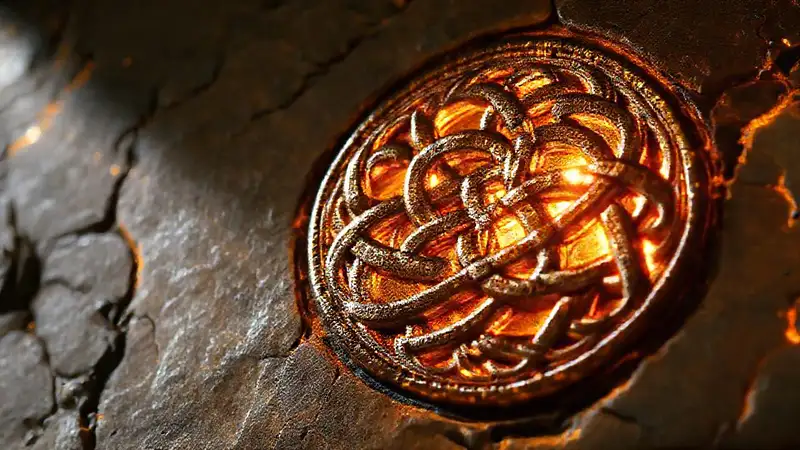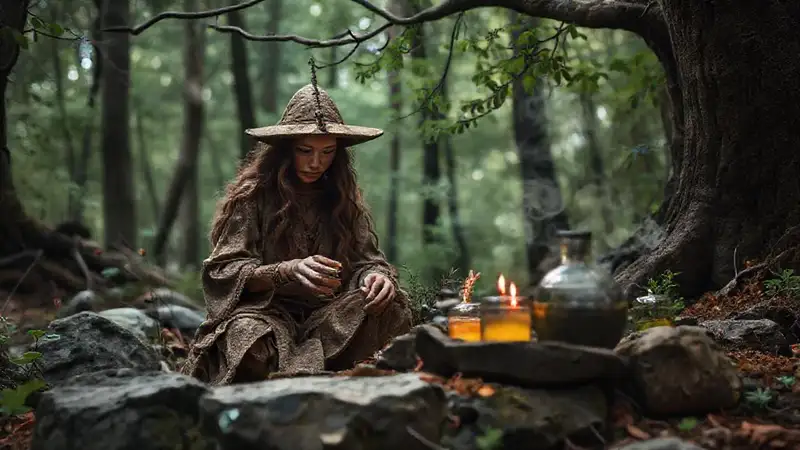Ancient Ireland, a land steeped in myth and legend, witnessed the flourishing of a unique Celtic culture long before the arrival of Christianity. This pre-Christian society, primarily shaped by the Druids, possessed a sophisticated understanding of the natural world, and particularly, the remarkable properties of plants. Their knowledge extended far beyond mere observation; it was deeply intertwined with religious beliefs, social structures, and the practice of divination. The Druids, as a priestly class and advisors to chieftains, held significant influence, and their practices, including the creation of herbal remedies and potions, represent a fascinating glimpse into the intellectual and medicinal capabilities of this ancient civilization. The resulting documentation, mostly oral, paints a picture of highly skilled practitioners.
The focus on the lannean (land) and its resources was central to Druidic life. They didn't simply exploit nature, but approached it with respect and a recognition of interconnectedness. This respect translated into a systematic collection and study of plants, recording their properties and potential uses – a process that laid the foundation for what would become a potent and complex system of healing. Understanding the interconnectedness of the natural world was also key to their spiritual beliefs, reflecting a worldview that profoundly shaped their approach to medicine and magic. This foundation is particularly evident in the surviving fragments of Irish mythology and later, in the medieval writings that attempted to preserve elements of their knowledge.
The Druids: Roles and Responsibilities
The Druids weren't a monolithic group, but rather a complex collection of learned individuals with varied roles within Irish society. They were primarily responsible for religious rituals, conducting ceremonies, and maintaining the oral tradition – the preservation of history, laws, and knowledge. Beyond this religious function, they acted as judges, educators, and advisors to tribal chieftains. Their authority stemmed from their understanding of bretha (fate) and the ability to interpret omens, providing guidance on matters of war, governance, and even personal conduct.
Critically, their knowledge wasn't gained through formal education as we understand it today. Instead, it was transmitted through apprenticeships, requiring years of dedicated study under a master Druid. These apprentices learned through observation, repetition, and practical experience, often spending extended periods in the wilderness, absorbing the wisdom of the natural world. This rigorous training ensured that the knowledge was passed down with precision and authority, safeguarding it from dilution or distortion. The Druids saw themselves as intermediaries between the human and divine realms.
Furthermore, the Druids were skilled in divination. Through techniques such as observing the flight of birds, interpreting patterns in fire, and analyzing the leaves of trees, they could predict the future and glean insights into the past. This skill wasn’t merely about fortune-telling; it was seen as a way to understand the will of the gods and to guide the community towards a harmonious path. It was a core element in their duties, combining religious responsibility and practical advisory skills.
Herbal Knowledge and Plant Identification
The Druids' understanding of herbal remedies wasn't based on scientific experimentation in the modern sense, but rather on a profound, intuitive knowledge of the properties of plants. They meticulously observed the effects of different plants on the human body, noting their medicinal qualities and potential side effects. Records, though often fragmentary, suggest they documented numerous plant species, classifying them based on their perceived effects – such as stimulating, calming, healing, or poisonous.
Detailed knowledge of local flora was paramount. Druids travelled extensively, meticulously cataloging and studying plants throughout Ireland. They understood the seasonal variations in plant properties, recognizing that a plant's potency could change depending on the time of year and the location. This understanding was crucial for ensuring the efficacy of their remedies. The importance of the céad (hundred) - groupings of plants and their associated properties - underscored this systematic approach to knowledge.
They also recognized the significance of preparation methods. They weren’t just using the raw plant material; they skillfully combined plants with other ingredients – often honey, herbs, and animal products – to create potent remedies. The precise methods of preparation were closely guarded secrets, passed down through generations within Druidic families. The emphasis was not on standardized recipes but on a nuanced understanding of the interplay between different components.
The Creation of Potions and Remedies

Druidic potions weren’t simply haphazard mixtures of herbs; they were carefully crafted concoctions designed to address specific ailments. Recipes, while rare and often cryptic, likely involved the extraction of active compounds from plants using techniques such as maceration (soaking in water) and distillation. Honey, frequently used as a preservative and delivery system, played a significant role in many formulations.
Furthermore, the Druids employed rituals and incantations alongside the preparation of remedies. The act of creating a potion was often considered a sacred process, imbued with spiritual significance. They believed that the act of focusing intention and invoking the power of the gods could amplify the medicinal properties of the ingredients. This intertwined the healing process with religious practice.
The efficacy of these potions was determined through observation and experience, rather than through controlled clinical trials. Individuals seeking remedies would typically describe their symptoms, and the Druid would then select the appropriate ingredients and formulate a potion based on their judgment. The trust placed in the Druid's knowledge was absolute, reflecting the central role they held in the community’s well-being.
Early Christian Influences and the Decline of Druidism
The arrival of Christianity in Ireland during the 5th and 6th centuries gradually eroded the Druids' influence and fundamentally altered the island’s cultural landscape. Initially, there was a period of co-existence, with Christian missionaries seeking to convert the Druids rather than eradicate them. However, as Christianity gained momentum, Druidical practices were increasingly viewed as pagan and heretical.
The Roman Church systematically suppressed Druidic knowledge, destroying sacred groves and banning Druidic rituals. Monasteries, established by Christian monks, became centres of learning, offering an alternative to Druidic education. These monasteries became keepers of much of what remained of the Druidic tradition, often adapting it to fit within a Christian framework. The final ban on Druidism occurred in 688 AD with the famous Pine-Stick Letter.
Ultimately, the gradual but determined efforts of the Church led to the suppression and eventual disappearance of the Druids as a significant force in Irish society. While elements of Druidic knowledge survived through oral traditions and monastic records, the unique culture and practices associated with the Druids were largely lost to history.
Conclusion
Ancient Ireland’s Druids represent a remarkable and often overlooked chapter in European history. Their deep connection to the natural world, combined with their profound understanding of herbal remedies and their complex religious beliefs, created a unique system of healing and knowledge. Despite their eventual decline under the influence of Christianity, the legacy of the Druids endures, reminding us of the power of observation, respect for nature, and the importance of preserving ancient wisdom.
The continued investigation of surviving fragments—including inscriptions, manuscript fragments, and folklore—offers invaluable insights into a sophisticated civilization that predates and profoundly influenced the later development of Irish culture. Understanding the Druids' role in Ireland helps to contextualize the island’s rich and complex past, demonstrating a vibrant pre-Christian society with considerable intellectual and practical skills that deserve continued study and appreciation.
 How did the discovery of Deir el-Medina alter archaeological insights
How did the discovery of Deir el-Medina alter archaeological insights What archaeological evidence supports Celtic settlements
What archaeological evidence supports Celtic settlements What archaeological discoveries highlight early Irish architecture
What archaeological discoveries highlight early Irish architecture How did Celtic mythology shape early Irish beliefs
How did Celtic mythology shape early Irish beliefs How does Maya astronomy illuminate broader ancient science
How does Maya astronomy illuminate broader ancient science Describe the significance of Celtic knotwork designs
Describe the significance of Celtic knotwork designs What’s the role of art in pre-Columbian cosmology
What’s the role of art in pre-Columbian cosmology
Deja una respuesta